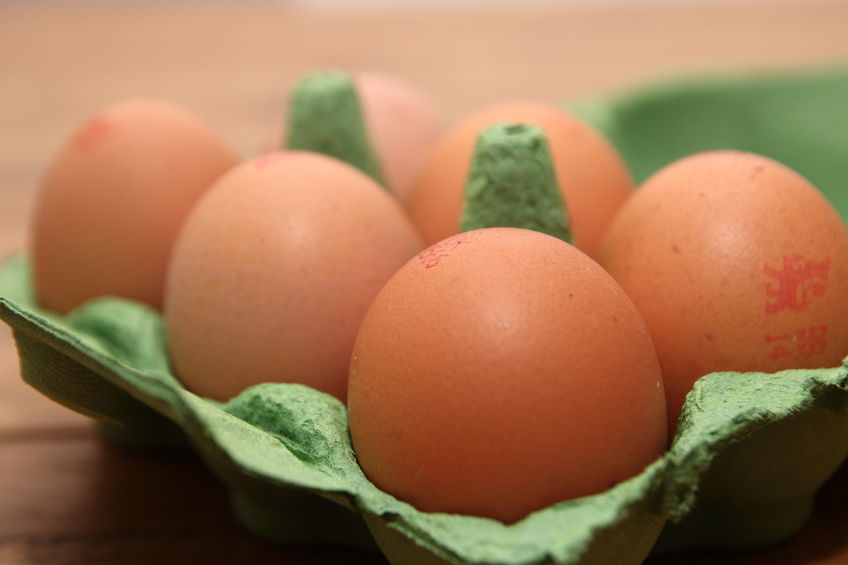
The UK egg industry is pressing for a change to lockdown rules that force free range eggs to be sold as barn after birds have been kept inside for 16 weeks.
Mark Williams, chief executive of the British Egg Industry Council (BEIC), told those attending this year’s Pig and Poultry Fair that the industry was lobbying for the change.
He called for a policy change to protect free range status during future avian influenza outbreaks, which are likely to become a more regular event.
“The UK is coming to the end now, hopefully, of the worst outbreak of AI we have ever seen - 117 cases in the UK, 97 of those in England and the rest divided across Wales, Scotland and Northern Ireland,” Mr Williams said.
He said the outbreaks had hit not just the UK but had hit large parts of Europe and other parts of the world, concentrated around the flyways of migratory birds.
"I think we have to prepare ourselves as an industry that we are going to get clobbered again at the end of this year and we’ll probably get clobbered again the following year.
"We have to be very mindful of that and adapt our businesses to suit,” he added.
As a result of this last winter’s outbreaks in the UK, chief veterinary officers ordered birds to be locked inside sheds to try to stop the spread.
The mandatory housing measures were put in place across the UK on 29 November 2021 and were not lifted until last week, on 2 May.
Under current rules, eggs could no longer be marketed as free range after the birds had been kept inside for 16 weeks - a rule that the industry feels is simply wrong.
“Of course, it overran the so-called 16-week period whereby eggs from free range hens can still have a marketing derogation and we can still call them free range,” said Mr Williams, speaking about the winter AI.
“We had a number of weeks until the second of May whereby eggs had to be labelled as barn. At the end of the day, to you as producers in this room you just wanted to make sure that you were receiving a return which was comparable to what you originally set those hens up as.
"In my book it is quite simple; they are still free range hens but because of a piece of paper called legislation they have to be called barn after 16 weeks,” he said.
“That to me is wrong and we are actively lobbying government now we are out of Europe to change that. If we can align matters with the organic regulations, which is effectively birds have to have access outside for a third of life,.
“We need government to be listening on that and so far they are not. We need to put a lot more pressure on them and that is what we are already doing.”
In 2017 the EU - the UK was still a member at the time - agreed to extend to 16 weeks the period that birds could be housed without losing their free range status.
The changes were brought in following widespread outbreaks of highly pathogenic avian influenza across Europe and the UK during the winter of 2016-17.
At the time, national governments issued a series of housing orders to try to prevent the spread of the virus.
But the existing EU rules allowed free range birds to be housed for just 12 weeks before they lost their free range status - creating a huge financial risk for producers whose eggs would have to subsequently be downgraded to barn.
Egg industry leaders from across the EU, including the UK, lobbied the European Commission for a change to these rules.
The Commission eventually agreed to extend to 16 weeks the period that birds could be housed without losing their free range status.
The UK authorities subsequently produced a letter for British producers highlighting the legislative changes made to the egg marketing regulations.
The letter was sent to the British Egg Industry Council (BEIC), the British Free Range Egg Producers Association (BFREPA) and the NFU for circulation to poultry farmers.
Mark Jackson, operations technical lead – eggs & poultry meat marketing, who signed the letter, says the aim is to offer advice on what the changes mean for producers in relation to egg stamping, labelling and transport documentation.
"The main changes made by the Commission Delegated Regulation are that this 12-week derogation period has been extended to a 16-week period, with the derogation being applied on a flock by flock basis," he said.
But the severity of the latest outbreaks ensured that the 16-week derogation was still not enough to prevent eggs losing their free range status after birds were locked up.
Elwyn Griffiths of Oaklands Farm Eggs told visitors to the Pig and Poultry Fair that in his view the birds were still free range no matter how long they had to be housed.
“Bird flu is here to stay,” he said. “It is a problem that’s going to come back every year, so this summer we do as an industry need to be a lot stronger in deciding how we deal with it.
"Personally, a free range chicken or a free range farmer is a free range farmer. If the birds are shut in for one day or 60 days or half a year, if a vet tells you to protect your animals, stop indoors, it is free range. I think we have got to re-educate the public.”
He said: “The farm has invested in free range production. If the vet’s advice is to look after your animals and lock them in, it’s still a free range bird.”
